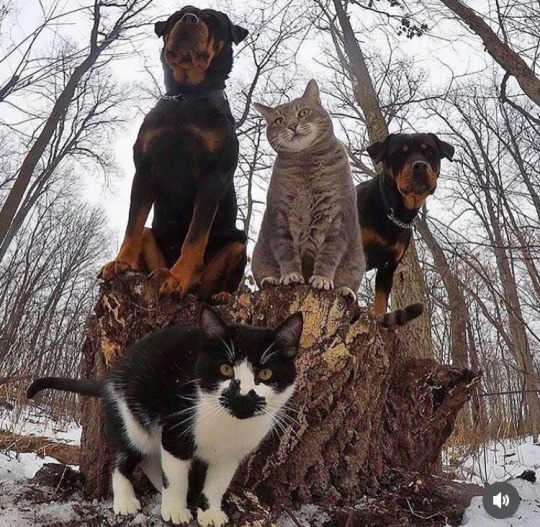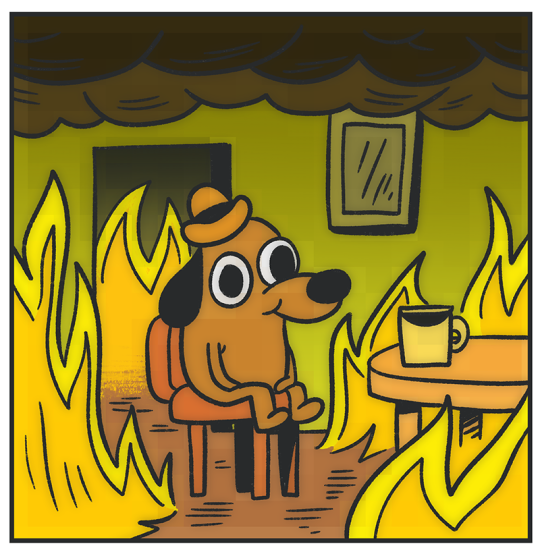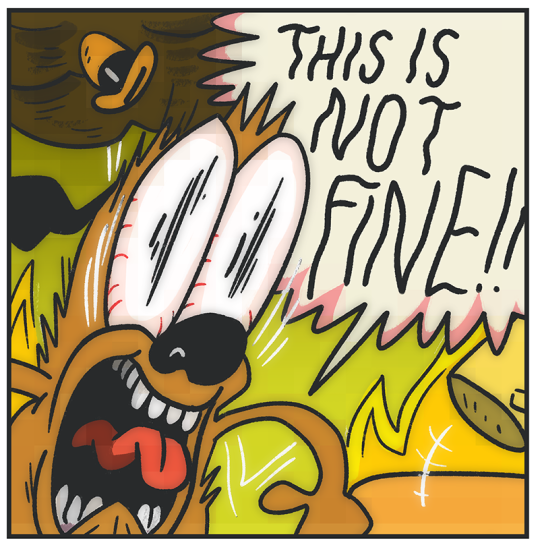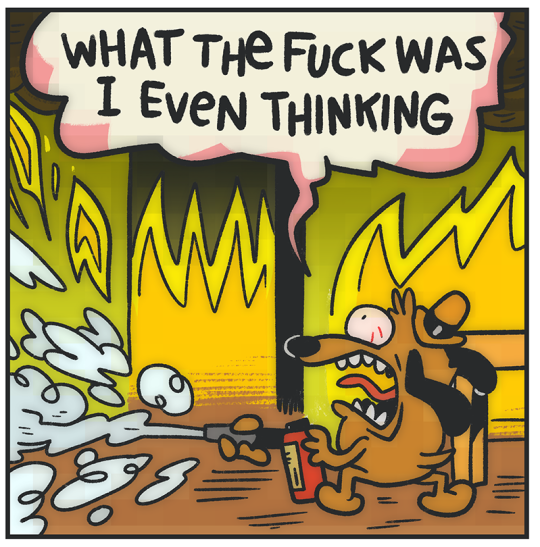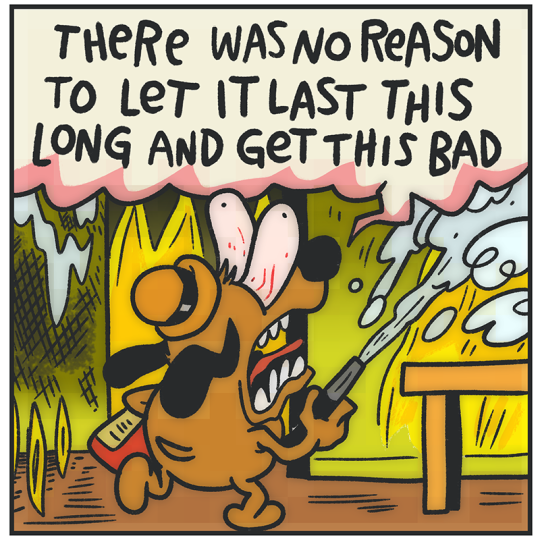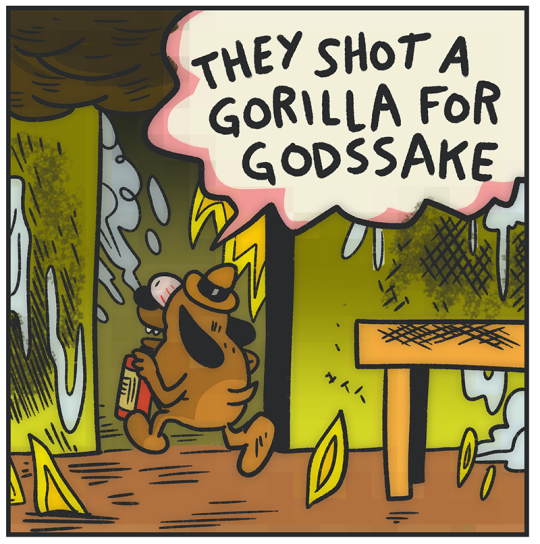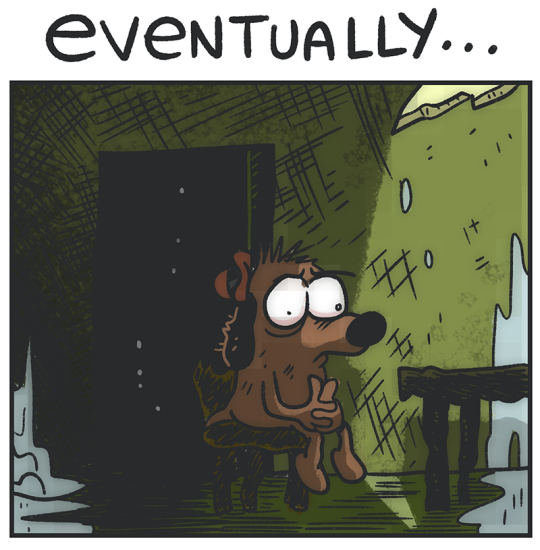Don't wanna be here? Send us removal request.
Text
i want to talk about my ocs but im literally this image. i got nothing

62K notes
·
View notes
Text
being a boring uncool insane mutual is a hard job but someone's got to do it
36K notes
·
View notes
Video
212K notes
·
View notes
Photo

Perfume Bottle in the Shape of a Pickle Jade, Gold, Rose Cut Diamonds Fabergé
2K notes
·
View notes
Text


Happy Pride Month!
Faust is back for the 5th time! If you want to use the flag of your choice as an avatar, they're under the cut. They're free to use as long as it's for personal use only.









50K notes
·
View notes
Text
the 90-9-1 rule, or A Partial Answer to the Eternal Question of 'Why Don't My Posts Get More Notes?'
In the small amount of time I’ve been on Al Gore’s internet, I have acquired a small amount of wisdom, which I now share with you: 90% of people don’t engage.
This theory of internet engagement has been floating around online since at least 2006, and as such, it goes by a lot of different names: participation inequality, the 1% rule, the 90-9-1 principle. Whatever name you encounter it under, the principle is the same: on any given website, most of the content is generated by only 1% of the user base.
This theory divides internet users into three camps:
Heavy Contributors are people who use the website every day and generate the vast majority of its content. In earlier eras of the internet, these were people posting in forums, maintaining their own geocity or angelfire pages, and setting up webrings to link related content and form communities of like-minded people. In the current age, the category of ‘heavy contributors’ includes influencers and content creators on platforms like YouTube and TikTok, but it also includes the people who remember to like, subscribe, and smash that bell icon. On websites like Tumblr, a heavy contributor is more likely to be a person who likes and reblogs without generating original content or adding commentary to others’ posts. But heavy contributors are also the big-time posters, the ones making gifsets, fic, viral shitposts, and other kinds of content. For these people, the internet is a social, creative place, and they go online to socialize and create. They generate the vast majority of the content everyone consumes and enjoys. And according to the 90-9-1 principle, these users represent only 1% of the people who use the internet.
Intermittent Contributors are people who use the website frequently and occasionally post. In modern times, this might be someone who mostly engages through likes and the occasional reblog. In fan communities and on websites like AO3, they might be an avid consumer of content, reading every fic with their OTP, but that passion doesn’t usually motivate them to leave comments, write fic of their own, or share recommendations. The intermittent contributors might be just as active as the heavy contributors, but their online presence is smaller. They make less of a splash than their noisier counterparts in the 1%. According to the theory, these users represent 9% of the people who use the internet.
Infrequent Contributors (lurkers) are everyone else. Because they don’t generate much (or any) content, it’s difficult to track their presence and behavior. Some sign on every day and read everything that’s posted without ever adding to the conversation. They might check Tumblr on their phones during breaks at work and never think about it otherwise. They might have an account they use once every three months when they remember it exists. They might never create an account, and just browse the front pages of sites like Reddit. According to the theory, these users represent 90% of the people who use the internet.
To people in the 1%, the behavior of the lurkers and intermittent contributors feels absolutely outlandish. Why bother signing on if you’re not going to make anything or contribute to the conversation? Why follow an account if you’re never going to like or reblog? Human beings have a tendency to see their behavior as “normal” and assume everyone else is doing the same, and that tendency toward generalization can be really blinding for people who exist in tiny, exceptional categories like the 1% of ‘active’ users.
The assumption that everyone uses the internet like they do can often make the people in the 1% feel very, very lonely, especially the creatives. You work for hours on a story or an illustration, hit ‘post,’ and get only a few comments and likes. You’ve got followers, you’ve got an audience, why is your work being met with crickets? If you’re posting in the hopes that other people will engage with your content, it can be very disheartening to create something and be met with silence by the vast majority of your followers.
The truth is that 90% of your followers just won’t engage. That doesn’t mean they’re not reading your stuff. That doesn’t mean they don’t enjoy your stories. That doesn’t mean they’re not looking forward to your next update or they’re not turning your story over in their heads while they wait for the bus. It just means that they’re not engaging with it in a way that is visible to you.
Think about it. You might be very active on one platform and quiet on another. You have read many books in your life, but how many letters have you written to authors? When you see a movie in theaters, is your first instinct to get online and tweet at the actors and directors? When you watch YouTube videos and TikToks, do you feel the urge to make your own, or do you just think “cool video!” and move on with your life?
I’ve been afflicted with Chats-Too-Much since birth, so I am inordinately active on talky platforms like Tumblr and Discord. But on YouTube, I’m an internet ghost. I have a few creators whose videos I watch avidly (and often multiple times). I follow them, I have the bell dinged, I even support a few on patreon. But I don’t comment on videos and rarely ever like them because that’s just not how I engage on that platform.
The 90-9-1 rule isn’t an absolute. Actual studies have found that the real percentages of different types of users varies from site-to-site. In the 1990’s and early 2000’s, online participation required a much greater degree of expertise and technical know-how. In the modern era, with the almost-universal implementation of like buttons, voting systems, and internal bookmarking features like AO3’s, more users fall into that middle category of intermittent contributors. Social media completely changed the way we use the internet to communicate, and the social distancing and isolation of the pandemic further reshaped our ways of engagement. I’m not even going to get into the subject of engagement as currency and the monetization of everything, because those are a) immensely depressing to me and b) outside of the scope of this essay, but the idea that anyone can become a celebrity online has also radically altered the way we exist on the internet.
This essay is only meant to say: on hobby sites and in fandom spaces, try to divorce your self-worth and desire to create from the amount of engagement your content gets. Each and every one of us loves to see the numbers go up, but the numbers can’t be why you’re engaging in social spaces and sharing your work. It’s not easy, but if your only drive to create is to get attention, you will never be satisfied. You’ll get 50 followers and wish you had 100. You’ll get 1,000 followers and wish you had 10,000. You’ll always be chasing more, and you’ll never be able to enjoy the followers you do have and the engagement you do get -- you’ll always be stuck staring at your analytics page, resenting the silent 90% for not doing more to boost your content and validate your worth in the eyes of the immortal algorithm.
It’s not easy to decouple your desire to create from your desire for attention. But it’s ultimately necessary for the good of your mental wellbeing and the good of your art. Enjoy your hobbies and enjoy your posting. If neither are bringing you any joy, ask yourself why and be willing to accept that you might need to let go of something or else shift your mode of engagement. You might even be happier as a lurker, creating only for yourself.
133 notes
·
View notes
Text
🕯️ 🕯️ 🕯️ 🕯️ 🕯️ I will enjoy my brainrot 🕯️ 🕯️ even when no one else does 🕯️ 🕯️ 🕯️ 🕯️ 🕯️ 🕯️ 🕯️
309 notes
·
View notes
Text
Let’s commit health code violations with mama
35K notes
·
View notes
Text
I hate it when people ask me what genre of music i listen to because i genuinely have no clue. It's called Music I Like genre. The best genre out there
96K notes
·
View notes
Text
exchanging headcanons and AUs with friends like

244K notes
·
View notes







